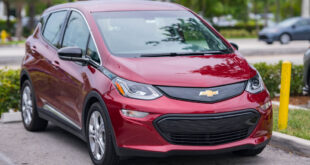Top Electric Car Companies: Driving Future Sustainable Mobility Electric cars (EVs) are reshaping the global automotive landscape, offering sustainable solutions to transportation challenges. With innovation and environmental consciousness driving this industry, understanding the top players in the electric vehicle market is essential. In this article, we delve into the top electric car companies, their innovations, market strategies, and how they are steering the future of mobility.
Introduction to the Electric Vehicle Revolution
The shift from internal combustion engines to electric vehicles is more than a trend—it’s a global movement. EVs are not only reducing greenhouse gas emissions but also driving advancements in technology, efficiency, and design.
1. Tesla: The Pioneer of Modern EVs
Tesla has revolutionized the EV industry with its innovative technology and high-performance vehicles.
- Notable Models: Tesla Model S, Model 3, Model X, and Model Y.
- Technology: Features like Autopilot and full self-driving capabilities.
- Market Presence: Tesla is a market leader with a significant share in the U.S., Europe, and China.
2. BYD: China’s EV Powerhouse
BYD (Build Your Dreams) is a dominant force in China, the world’s largest EV market.
- Key Offerings: Affordable and premium EV models like the BYD Han and Tang.
- Sustainability: Focus on battery innovation and renewable energy integration.
- Expansion: Rapid growth in international markets.
3. Nissan: Affordable and Reliable EVs
Nissan has been a major player in making EVs accessible to the masses.
- Iconic Model: Nissan Leaf, one of the world’s best-selling EVs.
- Focus: Affordable pricing without compromising on quality and range.
- Innovation: Advancements in battery recycling and energy management.
4. Volkswagen Group: A Legacy Transformed
Volkswagen has committed to becoming a leader in the EV market, leveraging its iconic brands.
- Popular Models: ID.3 and ID.4.
- Sustainability Goals: Aiming for carbon neutrality by 2050.
- Global Reach: Investment in battery technology and charging infrastructure.
5. Rivian: Redefining Electric Adventure
Rivian targets adventure enthusiasts with its rugged and versatile EVs.
- Noteworthy Models: Rivian R1T (electric pickup) and R1S (SUV).
- Funding: Backed by Amazon and Ford.
- Unique Proposition: Combining luxury, sustainability, and off-road capability.
6. Hyundai and Kia: South Korea’s EV Leaders
Hyundai and Kia have been making strides with their electric offerings.
- Highlighted Models: Hyundai Ioniq 5 and Kia EV6.
- Technology: Fast-charging and long-range batteries.
- Global Strategy: Competitive pricing and modern design.
7. BMW: Luxury Meets Sustainability
BMW blends luxury with cutting-edge EV technology.
- Prominent EVs: BMW i3, i4, and iX.
- Focus: Sustainable manufacturing processes and premium features.
- Market Appeal: Attracting eco-conscious luxury buyers.
8. General Motors (GM): An All-Electric Future
GM is transitioning to an all-electric lineup, showcasing bold commitments to sustainability.
- Key Models: Chevrolet Bolt EV and GMC Hummer EV.
- Vision: Zero emissions, zero crashes, and zero congestion.
- Initiatives: Investment in Ultium battery technology.
9. Lucid Motors: Performance and Luxury Combined
Lucid Motors focuses on ultra-luxury EVs with exceptional performance.
- Flagship Model: Lucid Air.
- Features: Market-leading range and cutting-edge design.
- Target Audience: High-end consumers seeking exclusivity and innovation.
10. Volvo: Safe and Sustainable EVs
Volvo is integrating its safety heritage with sustainability in the EV era.
- Key Vehicles: Volvo XC40 Recharge and C40 Recharge.
- Commitment: Fully electric lineup by 2030.
- Market Position: Trusted brand in Europe and the U.S.
Top 10 Tips for Choosing the Right Electric Car
- Assess your daily driving needs and range requirements.
- Research charging infrastructure in your area.
- Compare battery warranties and life cycles.
- Evaluate safety ratings and features.
- Check the availability of government incentives.
- Consider the total cost of ownership, including maintenance and charging.
- Explore financing options and lease deals.
- Look for advanced technology, such as self-driving features.
- Read reviews and ratings from other EV owners.
- Test drive multiple models to find your ideal fit.
10 Frequently Asked Questions (FAQs) About Electric Cars
- How long do EV batteries last?
Most EV batteries last between 10-20 years, depending on usage and maintenance. - Are electric cars more expensive to maintain?
No, EVs generally have lower maintenance costs due to fewer moving parts. - How long does it take to charge an electric car?
Charging time varies; fast chargers can replenish 80% in under 30 minutes. - What is the average range of an electric car?
Most modern EVs offer ranges between 200-400 miles on a single charge. - Are there enough charging stations?
Charging networks are expanding rapidly, with many urban areas well-covered. - Do EVs perform well in cold climates?
Cold weather can affect battery performance, but modern EVs have mitigations in place. - Can I charge an EV at home?
Yes, most EV owners install home charging stations for convenience. - What incentives are available for buying EVs?
Incentives vary by region, including tax credits and rebates. - Are electric cars truly environmentally friendly?
Yes, they have a smaller carbon footprint compared to gas-powered cars. - Do electric cars have the same resale value as traditional cars?
EV resale values are improving as demand increases and technology advances.
Conclusion
Electric cars represent the future of sustainable transportation, offering innovative solutions to global challenges. From pioneering brands like Tesla to emerging players like Rivian, the EV industry is booming with potential.
With advancements in battery technology, charging infrastructure, and government incentives, switching to an electric vehicle has never been more appealing. By making informed choices, consumers can enjoy the benefits of EVs while contributing to a greener planet.
 oto car insurance used car repair
oto car insurance used car repair
